What are the risks to my stories
Saving my stories required an agent, high-profile reviews, media links, book launches, hard work and lots of money. I had none of those and I had to save my stories myself. Publishers told me that if a book is not successfully marketed in the six months after publication, it will die. As a self-published writer, divorced, without influential friends, social clout and financial support and of course, experience and marketing know-how, I took a chance and I’m still working at succeeding. Even more than being well-written, a book must be trendy and newsworthy, and the female writer attractive and preferably young. I started publishing late after my divorce left me isolated and socially disadvantaged with no one to help me. Now I have the love and editorial support of John Corley and that makes me a very fortunate woman and writer.
Why I divorced to save myself and my stories
To write and make art I had to leave my husband. There are many reasons why my divorce happened and there are many reasons why it took a while to happen. Children were the most important reason to stay. Love was a reason. It’s true that it is possible to love and feel compassion for a damaged person who deliberately hurts you. Mine is not the only story. Another reason was because I felt rooted in southern Africa, and my life’s commitment was there. Like many women I had nowhere to run to and no money of my own.
Working for artists and making art
My husband didn’t allow me to have my own bank account and said any job I did must fit in with his.Fortunately for me, we had many creative connections and artistic friends, so while my husband could not prevent my support for other artists, making my own art was another thing entirely. I did manage it from time to time. I had two solo art exhibitions in Zambia. One, in 1980, was my first failed attempt to leave my husband. I made enough money from the show and work I had done on Michael Raeburn’s film based on Doris Lessing’s book The Grass is Singing to train as an art teacher. My next exhibition in Zambia was in 1996 after I had left my husband. Perhaps that explains why I had to divorce to exist as the creative person I am. It was hard and people I knew punished me for it. I’ll illustrate that with this short story.
A divorcee is a bad woman
I was a company wife who was an asset managed by my husband and his work. The view of divorced women then was that they ‘took their husbands to the cleaners’, which made the women ‘bad persons‘. I had no financial resources of my own except a family inheritance that made leaving possible for me. That didn’t register in the context I had lived in where my husband, a well-respected doctor, was essential to everyone’s lives and I wasn’t. I used a family lawyer and asked for a no-blame, clean-break divorce to be as fair and economical as possible. I got that. An expensive lawyer cost my husband his inheritance but didn’t change divorce law.
How I was seen
Later I was invited to to dinner with people who had known me for years in Zambia. “How,” one woman asked after the main course (eaten on linen tablecloth with full place settings,) “could I justify taking so many crates of possessions out of Zambia to England.?” I was stunned into silence. She did not know what was in those crates so what had she been told? I took away only my own art, sketchbooks and materials. but not my easel, all my sewing equipment – a machine then 20 years old, but not my sewing table and all my writing research, books, notebooks and computer with a few personal family books and treasures. I left the family house in Zambia intact as a home.
What I actually did
Every single thing I took away I’ve needed and made daily use of in my art, my writing and my life. My husband burnt the paintings that I left behind. When he died not one of the 100s of books which had been collected for the family remained. Another that dinner guest suggested I live simply and only use one knife and fork at meals. It is a bitter experience to discover that most people take the side of the powerful and the back the conventional veiw. No one has ever asked me why I left.
Life’s experiences and writing
My best writing comes from my lived experience of sorrow, joy and the struggle to make meaning out of my life. I write with blood and tears with pens made from my bones. I expect that anyone reading my stories will find the traces of my life woven into them, but they may not be able to find a definitive me in them. I’ve already heard some incorrect guesses about which character is modelled on myself or someone I know. Even fantastic stories can’t escape the life lived by the writer, so I make no apologies for the fact that that my own flesh and feathers are in my stories.
Publishing and self-publishing
I only managed to get down to serious writing in the ’90s when I sent off thirty envelopes to agents and publishers with three chapters of my first book typed on paper. The digital publishing world was just starting. Soon after I was sending emailed Word documents but the ease of doing that swamped publishers and agents with millions of books. I realised that self-publication was my only option. My work was too ‘niche’ – too unique to be easy to market.I found the wonderful Jeremy Thompson and Troubador Publishing for my first two books in 2014. The costs of self-publishing can be found on their website. I had to pay for everything – editors, typesetting, eBooks, publication, marketing – the list goes on. Self-publishing also changed rapidly. I tried Spiffing Covers in 2019 for the next three books and finally went back to Troubador for the last book in 2021.
Writing to earn a living
My ex-husband was a contradictary person. He was successful and loved but needed to be poor and feel undeservedly unloved – a kind-of Citizen Kane confusion. I knew that he would choose to die in poverty and part of the reason I wrote was in the hope that my books would make money for my children and compensate for their father’s strange need. I’ve failed miserably to be a financial success, so my gift to my children will be only these stories. I’ve tried to entertain, to tell truths, to be authentic and never unkind or revengeful. I hope my children will find them so.
Problems and solutions
As I explained, books have a small window to reach readers, so paying to keep my books on the Troubador website after 2 years was profitless. Spiffing Covers offered me the opportunity to put my books on Amazon Kindle andto upgrade the SEO and keyword algorithms that allow readers to find my books online on Amazon with the help of Joe Hewes.. That has taken time and money and has just been recently completed. For the moment I can do no more. I will never be able to recover the costs of publishing and marketing my books. If I was to add the value of my time writing them even at a minimum wage the costs would be vast. My books therefore are a gift to posterity. They are unique tales and that means they are the same and different to all the other stories in the world.They are written for you and to give life to unknoown histories.
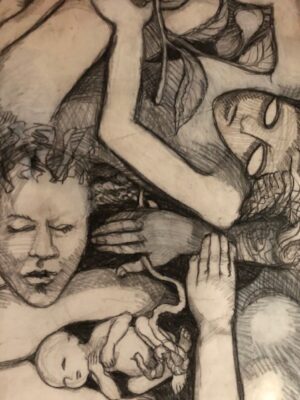

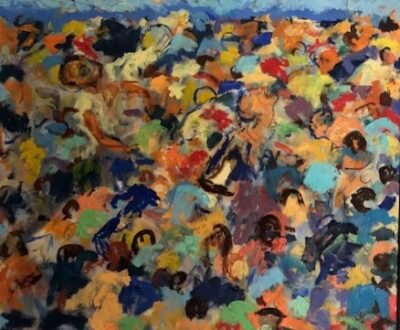
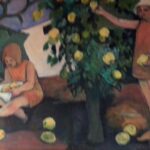
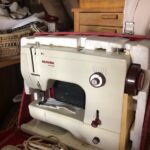


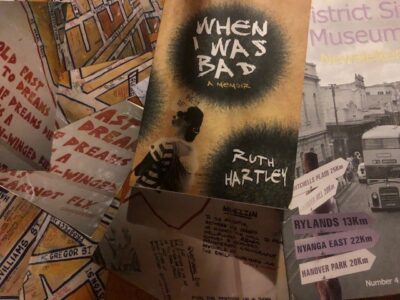
One Comment on “Saving my stories”
Ruth, my heart goes out to you. Lorraine, X